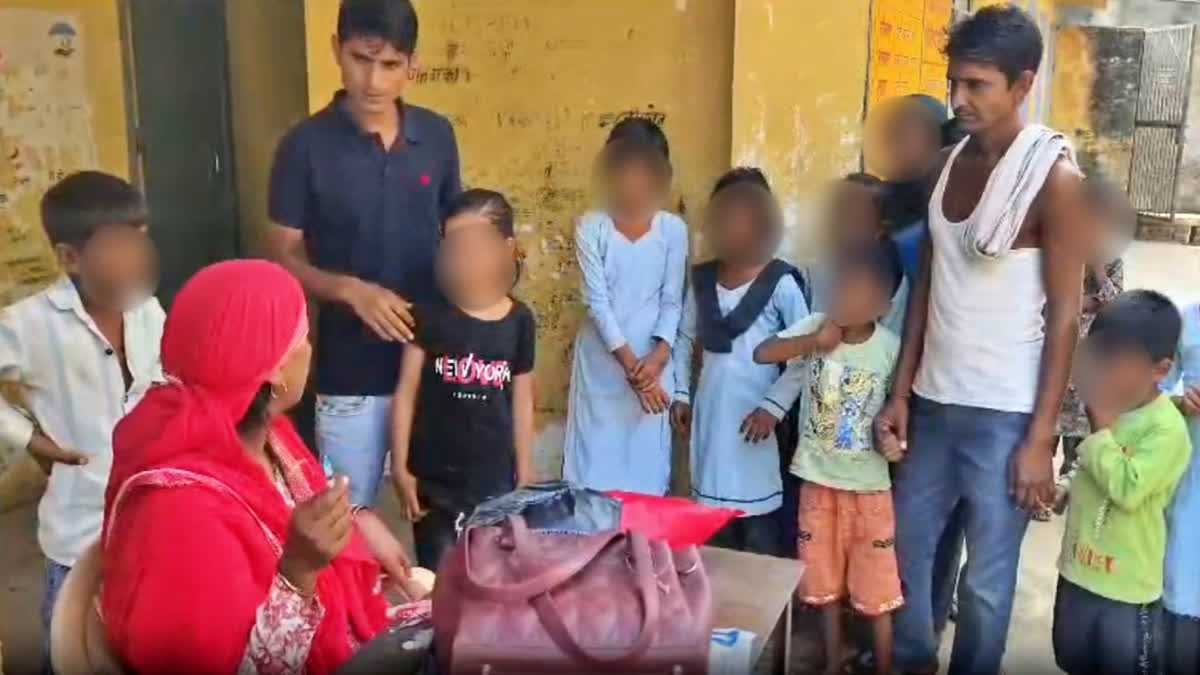Deeg: A team of the World Health Organization (WHO) has rushed to Rajasthan after at least seven children lost their lives due to diphtheria in Deeg district of the state in the last one month.
The victims were aged between three to seven years and were residents of the Nagar, Kaman, and Pahadi areas of the Deeg district. The medical department has issued a high alert in the entire district. In the villages of the district where children died of diphtheria, the team of WHO and Health Department Jaipur has reached the area and started vaccination.
Samples of suspected children are being collected. Deeg CMHO Vijay Singhal said that on September 14, a seven-year-old boy identified as Sumit died of diphtheria in the Kaman area. After this, the medical department started examining children in Kaman and surrounding areas. Between September 14 and October 12, six more children died of diphtheria in the district.
Officials said that around 24 children have tested positive in the district and they are undergoing medical treatment. “This is a disease which becomes common when people do not come to get the vaccine despite it being administered free by the government. This disease is caused by infection of Corynebacterium bacteria. The bacteria first damages the throat. A person may lose his life in the absence of proper treatment. Aiming to prevent this disease, vaccination is done every month in every village by going door to door, but some people do not get their children vaccinated,” the CMHO said.
What is diphtheria?
According to WHO, Diphtheria is contagious disease caused by the bacterium Corynebacterium diphtheriae. Signs and symptoms usually start 2–5 days after exposure and range from mild to severe. Symptoms often come on gradually, beginning with a sore throat and fever.
In severe cases, the bacteria produce a poison (toxin) that causes a thick grey or white patch at the back of throat. This can block the airway making it hard to breathe or swallow and create a barking cough. The neck may swell in part due to enlarged lymph nodes.
The toxin may also get into the blood stream causing complications that may include inflammation and damage of the heart muscle, inflammation of nerves, kidney problems, and bleeding problems due to low blood platelets. The damaged heart muscles may result in an abnormal heart rate and inflammation of the nerves may result in paralysis.
How is diphtheria spread?
Diphtheria spreads easily between people by direct contact or through the air through respiratory droplets, like from coughing or sneezing. It may also be spread by contaminated clothing and objects.
Key facts about diphtheria
- Diphtheria is a vaccine-preventable disease, but multiple doses and booster doses are needed to produce and sustain immunity.
- Those who are not immunized or under-immunized are at risk of the disease.
- For unvaccinated individuals, without proper treatment, diphtheria can be fatal in around 30% of cases, with young children at higher risk of dying.
- In 2023, an estimated 84% of children worldwide received the recommended 3 doses of diphtheria-containing vaccine during infancy, leaving 16% with no or incomplete coverage. There is wide coverage variation between and within countries.



